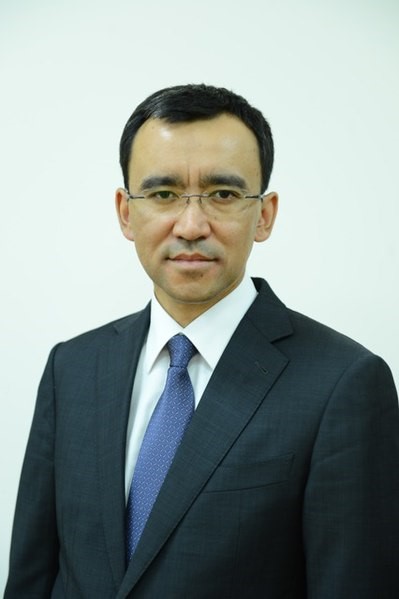
Maulen Ashimbayev.
“The key change is the concept of a “coordinating state”: it must take over leadership of a peacekeeping operation if one is carried out.”
In early January 2022, member states of the Collective Security Treaty Organization (CSTO) demonstrated their willingness to carry out a joint peacekeeping operation when the organization deployed units from the Collective Operational Reaction Force to Kazakhstan. On 3 March 2022, President Vladimir Putin submitted a protocol to Russia’s State Duma to amend the CSTO’s agreement of peacekeeping activities, causing speculation that the CSTO would deploy peacekeepers to Ukraine. The accompanying excerpted articles provide more context to the possibility of a CSTO peacekeeping mission in Ukraine, suggesting that CSTO is not likely get involved.
The accompanying excerpted article from semi-independent Russian daily Kommersant reports on Putin’s submission of the protocol to amend the CSTO’s peacekeeping activities. The article mentions that the change involves having a “coordinating state” to take “leadership of a peacekeeping operation if one is carried out.” CSTO officials stated that the “change is not connected to the events in neighboring Ukraine,” but is meant to integrate a CSTO peacekeeping force into the UN and deploy it outside the organization’s area of responsibility. In the past, the Russian government has tried and failed to obtain an official mandate from the UN to have its peacekeeping forces in the post-Soviet space. The article from Kazakhstan government-run news agency Kazinform reports on a statement from Maulen Ashimbayev, the Chair of the Senate of Kazakhstan, in response to the possibility of Kazakh peacekeepers deploying to Ukraine. Ashimbayev states, “in accordance with the Charter of the United Nations and in accordance with other documents, Kazakhstan can send our peacekeepers outside the CSTO countries only in accordance with a UN mandate.” This statement came out the day of Russia’s invasion and prior to any speculation that came with Putin’s proposed change to the amendment.
The article from the Armenian state news agency Armen Press reports on a statement from Vahagn Aleksanyan, a member of Armenia’s National Assembly, in response to Armenia’s obligations to the CSTO. He notes, “the CSTO mechanisms are triggered in the event of an attack on one of the CSTO member states.” In addition, he does not believe the conflict will spread to Russia, which would initiate a response of the CSTO’s article on collective defense. He does not bring up a peacekeeping operation, but his comments still represent how another CSTO member is responding to potentially getting involved in the war in Ukraine. If the statements from Kazakh and Armenian officials are any indication, the CSTO is not likely get involved in Ukraine.
Source:
Vladimir Solovyev, “Украина ни при чем (Ukraine has nothing to do with it),” Kommersant (semi-independent Russian daily newspaper), 4 March 2022.
https://www.kommersant.ru/doc/5240328
…Russian President Vladimir Putin submitted a protocol on amending the “Agreement on the CSTO peacekeeping activities” to the State Duma for ratification. The key change is the concept of a “coordinating state”: it must take over leadership of a peacekeeping operation if one is carried out…The CSTO said the adoption of the change is not connected to the events in neighboring Ukraine…
…Changes to the “Agreement on peacekeeping activities” were adopted on September 16, 2021 at the CSTO Collective Security Council session in Dushanbe. They are necessary in order for the organization to be able to integrate its peacekeeping potential into the UN peacekeeping mechanism, so that it would be possible to use CSTO peacekeeping outside the organization’s area of responsibility…
Source: Serik Sabekov, “Маулен Ашимбаев ответил на вопрос о направлении миротворцев из Казахстана в зону конфликта между РФ и Украиной (Maulen Ashimbayev answered the question about the deployment of peacekeepers from Kazakhstan to the conflict between Russia and Ukraine),” Kazinform (government-run news agency in Kazakhstan), 24 February 2022.
The Chair of the Senate of the Republic of Kazakhstan Maulen Ashimbayev commented on the question of the possible deployment of Kazakh peacekeepers to take part in the conflict in Ukraine, Kazinform reports.
“In this situation, we must proceed from the following – Kazakhstan is a member of the Collective Security Treaty Organization – the CSTO. In this regard, the question arises, is it possible to send Kazakh peacekeepers to the conflict?… . In accordance with the Charter of the United Nations and in accordance with other documents, Kazakhstan can send our peacekeepers outside the CSTO countries only in accordance with a UN mandate,” Maulen Ashimbayev said…
The speaker noted that, in accordance with the CSTO charter, peacekeeping forces and troops of the organization’s countries can only be used on the territory of the participating countries…
Source: “Депутаты коснулись вопроса возможности применения механизма ОДКБ в Украине (Deputies raised the issue of the possibility of using the mechanism of the CSTO in Ukraine),” Armen Press (Armenian state news agency), 7 March 2022.
https://armenpress.am/rus/news/1077269.html
The CSTO mechanisms work only in case of an attack on one of the CSTO member states. Vahagn Aleksanyan, a member of the “Civil Contract” faction of the National Assembly, said this, what would Armenia’s position be if Russia, the CSTO partner, offered to implement the CSTO mechanisms…
“It should be noted that the CSTO mechanisms are triggered in the event of an attack on one of the CSTO member states, the transfer of hostilities to the territory of Russia, at least for the moment, I do not consider likely,” Aleksanyan said…
Image Information:
Image: Maulen Ashimbayev.
Source: https://commons.wikimedia.org/wiki/File:Maulen_Ashimbayev.jpg
Attribution: CC 1.0
